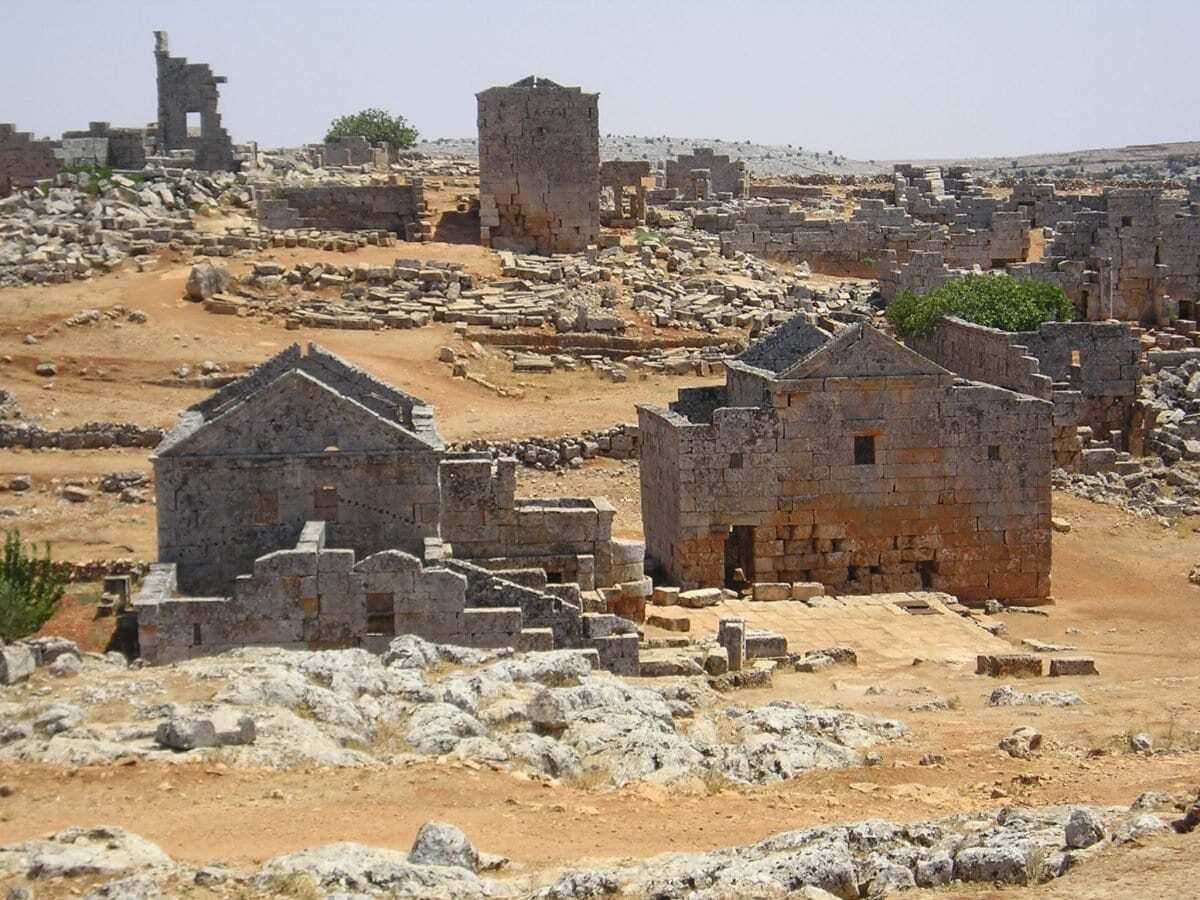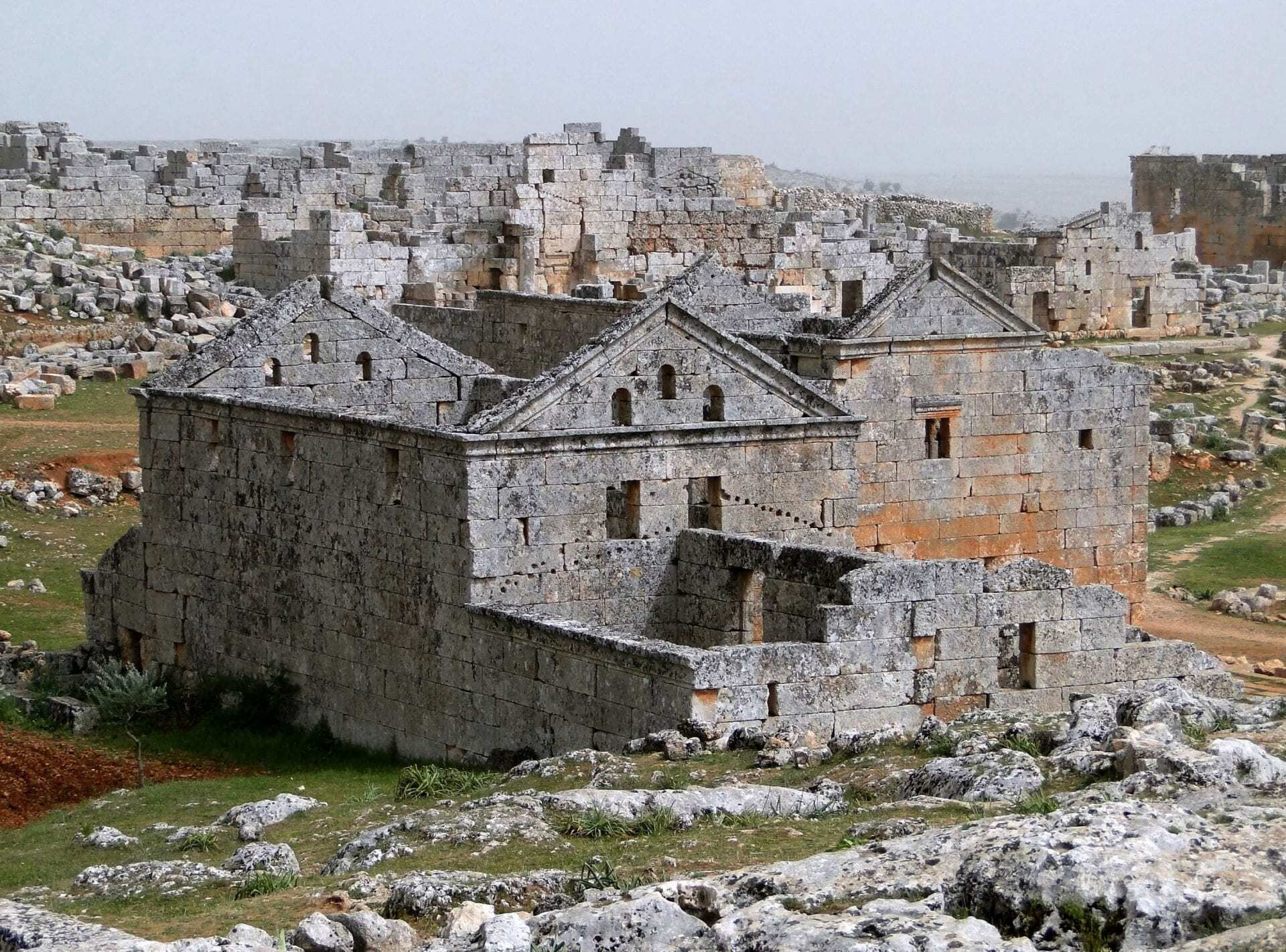Serjilla is an abandoned settlement, part of a group of 40 similar sites known as the “Dead Cities” that are organised into 8 archaeological parks in northwest Syria.
The Dead Cities formed a centre of agriculture for the region, supplying wheat, grapes, olives and wine for Antioch and Apamea from the Roman classical period when the Byzantine Empire was near its peak.
Serjilla covers an area of around 19.7684 acres and is located on the Eastern slope of the Ariha Mountai in Jebel Riha, a highland region in the modern-day Idlib Governorate.

The settlement is considered one of the oldest Byzantine sites in the region, having been founded around AD 473 and provides archaeologists an insight into the agrarian Byzantine farming practices for the cultivation of grapes and olives.
The site is a complex of domestic houses (some still containing a second storey and roof), a basilica, a bathhouse, olive presses, a public building known as an adron (a men’s meeting room or tavern) and various tombs and sarcophagi that surrounds the community. Some of the larger porticoed villas had up to 16 rooms and was probably shared by extended families.

Serjilla was abandoned during the 7th century, possibly in part due to an economic decline from shifting trade routes caused by the expansion of the Umayyad dynasty, or due to the Abbasid Empire conquering the region later in the same century.
The site’s proximity to embattled areas in recent years, looting and displaced Syrians living in the ruins has caused considerable damage to the surviving structures despite being designated a Unesco World Heritage Site in 2011 along with 40 other sites named “Ancient Villages of Northern Syria.”
Header Image – Serjilla – Image Credit : Bernard Gagnon





